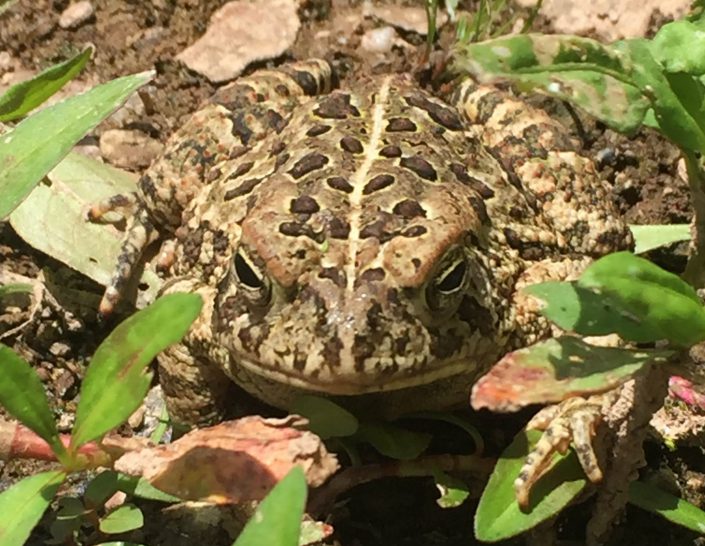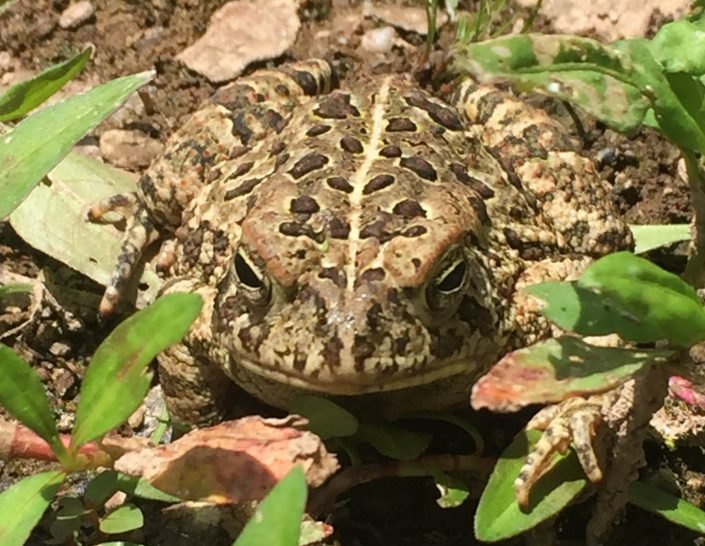Toads are not poisonous to touch, but their skin does secrete a substance that can cause irritation in some people. This substance is usually not harmful, but it can be if it gets into your eyes or open wounds. If you do come into contact with a toad, it’s best to wash your hands and any affected area with soap and water.
If you’ve ever been curious about whether or not toads are poisonous to touch, the answer is yes…sort of. Toads secrete a substance called bufotoxin from their skin which can cause irritation, swelling, and pain if it comes into contact with human skin. In some cases, it can even lead to nausea and vomiting.
However, the effects of bufotoxin are generally mild and temporary. So while you might not want to go around hugging toads, a little bit of accidental contact probably won’t do any harm.
Wild What’s Up Week One: Are Toads Poisonous?
Can a Human Be Poisoned by a Toad?
There are many different types of toads, and some of them can indeed be poisonous to humans. The most well-known poisonous toad is the Colorado River toad (Bufo alvarius), which is found in southwestern United States and northwestern Mexico. This toad secretes a poison called bufotenin from its skin, which can cause hallucinations if ingested.
Bufotenin has also been linked with deaths in humans, though these are rare. Other poisonous toads include the Common European Toad (Bufo bufo) and the Cane Toad (Rhinella marina). These toads secrete toxins from their skin that can cause irritation, swelling, and pain if they come into contact with human skin.
If ingested, these toxins can also cause vomiting, diarrhea, and even death. In general, it is best to avoid all contact with toads, especially if you don’t know for sure that they are not poisonous.
Are Backyard Toads Poisonous?
No, backyard toads are not poisonous. They are, however, capable of causing a mild skin irritation in some people. If you have ever had a toad hop on your bare skin, you may have experienced this firsthand.
The toad’s skin secretes a substance that can cause redness, swelling and itchiness in some people. While it is not dangerous, it can be quite uncomfortable. If you experience any adverse reaction to a toad’s skin, wash the area immediately with soap and water.
Do Toads Have Poisonous Skin?
There is a lot of misinformation out there about toads and their skin. Some people believe that toads are poisonous, but this is not true! Toads are actually quite harmless creatures.
Their skin does not produce any toxins or venom, so it is perfectly safe to touch them. In fact, many people keep pet toads!
Some toads do secrete a substance from their glands that can be irritating to the eyes and mucous membranes, so it’s best not to handle them if you’re allergic or have sensitive skin.
But overall, there’s no need to be afraid of these little amphibians.
Are Garden Frogs Poisonous?
In short, no. Garden frogs are not poisonous.
There is a common misconception that all frogs are poisonous.
This is simply not true! In fact, less than 1% of frog species are considered to be toxic to humans. The vast majority of frogs pose no threat whatsoever to our health.
So why does this myth persist? Well, it’s likely because some of the most toxic and dangerous animals on the planet are frogs! The golden poison dart frog, for example, secures its place at the top of the list with a lethal dose of venom that is powerful enough to kill 10 humans!
Thankfully, garden frogs are not among these deadly species. These amphibians are actually quite beneficial to have around, as they help to control pests in your garden or yard. So if you see a frog hopping around your property, rest assured that it poses no threat to you or your family.

Credit: www.conservewildlifenj.org
Is Toad Poisonous to Human?
Toads are often feared because of their warty skin and their ability to produce a poison that can cause swelling and pain in humans. However, not all toads are poisonous and, in fact, only a small percentage of toad species contain enough toxins to pose a serious threat to humans. The vast majority of toads that come into contact with people are harmless.
There are three main groups of toads that contain toxins capable of causing harm in humans: the Colorado River toad (Bufo alvarius), the European fire-bellied toad (Bombina bombina), and the true poison dart frogs (Dendrobatidae family). Out of these, the Colorado River toad is considered the most dangerous because its toxin is more potent and it secretes larger amounts of the substance than other toxic toads.
The toxins found in these poisonous toads are bufotenins and bufotoxins.
Bufotenins are psychoactive compounds that can cause hallucinations if ingested in large enough quantities. Bufotoxins, on the other hand, are compounds that can cause irritation and pain when they come into contact with human skin. In some cases, these toxins can also lead to more serious health problems like nausea, vomiting, diarrhea, seizures, and even death if left untreated.
If you encounter a potentially poisonous toad, it’s important not to handle it directly since this could allow the toxins to enter your body through cuts or open wounds on your skin. If you must move a toxic Toad out of harms way (for example – if it’s blocking your doorway) use gloves or another form of barrier between your skin and the Toad.
Are Toads Poisonous to Dogs?
There are many different species of toads, and not all of them are poisonous to dogs. However, there are some toads that can be harmful to your furry friend if they ingest them. The most common type of poisonous toad is the Bufo marinus, which is also known as the marine toad or giant neotropical toad.
These toads secrete a toxic substance from their skin that can cause serious health problems for dogs if they lick or chew on them. Symptoms of toxicity include drooling, vomiting, difficulty breathing, tremors, and seizures. If you think your dog has come into contact with a poisonous toad, it is important to seek veterinary care immediately.
Symptoms of Toad Poisoning in Humans
Toad poisoning in humans is a serious condition that can lead to death. Symptoms of toad poisoning include: vomiting, diarrhea, seizures, coma, and death. Toad poison is found in the toad’s skin and glands, and can be transferred to humans through contact with the toad’s skin or secretions.
The most dangerous type of toad poison is bufotenin, which can be fatal even in small doses. If you think you or someone else has been poisoned by a toad, seek medical attention immediately.
Conclusion
Many people believe that toads are poisonous to touch, but this is not the case. Toads secrete a toxin from their skin that can be harmful if ingested, but it is not harmful if you simply touch them. If you have any concerns about touching a toad, you can always wash your hands afterwards.
